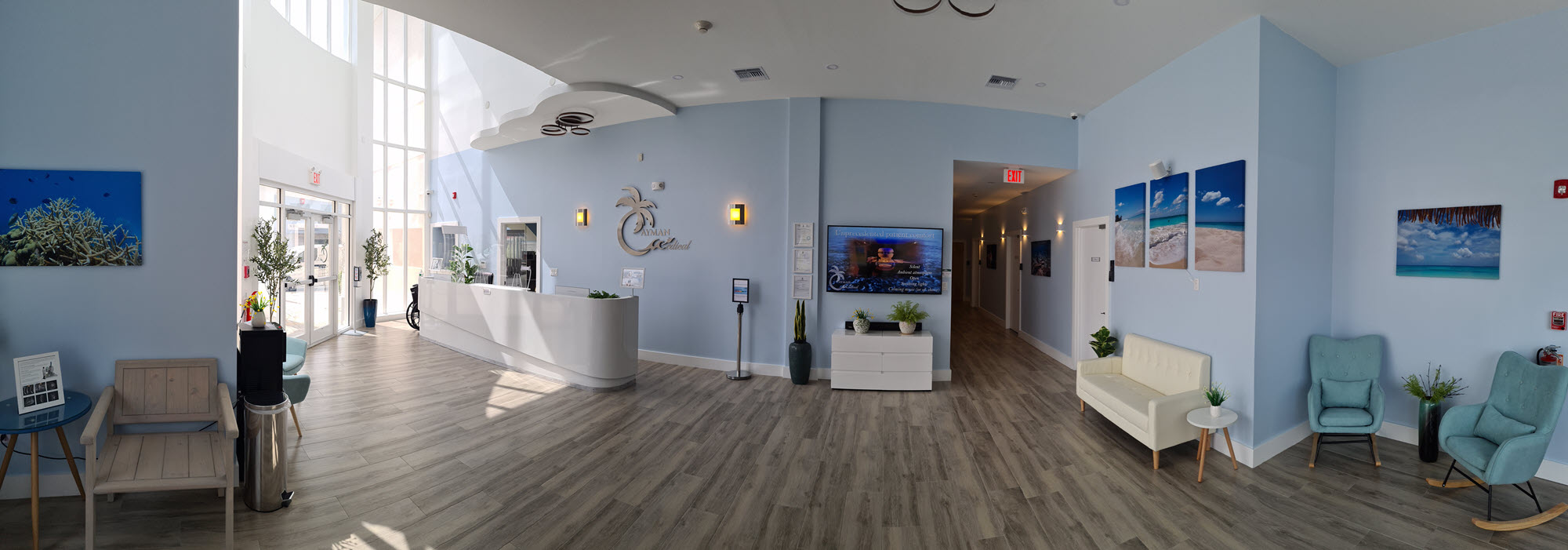

Pediatric MRI - Safe, Gentle Imaging for Children
Offering unique MRI services in the Cayman Islands:
- Child-appropriate imaging protocols for brain, spine, joints, and soft tissues
- Open, quiet, and spacious MRI design - less fear, more comfort
- No anesthesia or sedation needed
- Pediatric-trained staff ensuring a calm and supportive experience
- Results reviewed by board-certified radiologists with pediatric experience
-
What is a Pediatric MRI?
A Pediatric MRI is a magnetic resonance imaging exam designed specifically for children. It uses a strong magnetic field and radio waves - not harmful ionizing radiation - to create highly detailed images of the body, helping doctors diagnose and monitor various conditions safely and painlessly.
-
Is MRI safe for children?
Yes. MRI is completely safe for children as it does not use any harmful ionizing radiation. It is one of the most accurate and child-friendly imaging techniques available, and our Cayman Medical MRI suite is designed to minimize anxiety and maximize comfort.
-
Will my child need sedation for the MRI?
In most cases, no sedation is needed. Our open MRI allows children to see their parents or caregivers and feel less confined. For younger or anxious children who have difficulty staying still, mild sedation can be discussed and safely arranged if necessary.
-
How can I help prepare my child for the MRI?
Explain the scan as a "special camera" that takes pictures of the inside of the body. Encourage your child to lie still and remind them that nothing will touch or hurt them. Bringing a favorite toy or blanket can also provide comfort. Our staff will guide both you and your child through every step with patience and care.
-
What conditions can Pediatric MRI evaluate?
Pediatric MRI helps evaluate:
- Brain development and neurological disorders
- Spinal alignment and disc problems
- Joint pain, sports injuries, and bone conditions
- Congenital abnormalities
- Inflammation or infection
- Post-surgical follow-up -
Can parents stay with their child during the scan?
Yes. A parent or guardian can usually remain in the room during the scan, offering reassurance and comfort. Our staff ensures all safety protocols are followed, including removal of metal objects before entering the MRI suite.
-
How long does a Pediatric MRI take?
Most pediatric MRI exams take 30-60 minutes - in some cases an abbreviated version can be offered. The duration may vary depending on the area being scanned and whether contrast is required. Our goal is to keep your child calm, still, and comfortable throughout the process.
-
How do I schedule a Pediatric MRI at Cayman Medical?
You can book by calling (+1 345) 623-1000, messaging us on WhatsApp (+1 345) 326-1000, or booking online.
We prioritize children's appointments and offer flexible scheduling for families.
Specialty MRI Services
From "Head to Toe"
Head & Neck Imaging
Brain, Orbits, Internal Aditory Canal (IAC), Sella (Pituitary), Temporomandibular Joints (TMJ), Neck
Spine Imaging
Craniocervical Junction, Cervical Spine, Thoracic Spine, Lumbar Spine, Sacrum, Sacroiliac joints
-
What is Magnetic Resonance Imaging (MRI)?
Magnetic Resonance Imaging (MRI) is an imaging procedure that uses strong magnets and radio-frequency pulses to generate signals from the body. These signals are processed to create very detailed images of the body. No harmful radiation is used.
-
What to expect during your MRI?
You will be asked to complete a safety questionnaire to make sure you can be scanned safely.
It might be necessary to change your clothing prior to the exam if it contains metal. You are welcome to bring your own comfy dress such as pajama or cotton shorts.
Most of the time, you will have visual and communication contact with the technologist - for a higher comfort level.
During the exam, you will be surrounded by ambient lights which help you relax. Most patients fall asleep or simply doze off during the exam.
To increase your comfort level, we play soothing melodies and sounds or you can even choose your own music.
The body part that is being examined will be placed in the center of the scanner. You may be positioned in such a way to better see the anatomy. The scanner may move and you may be scanned lying down or standing up. You may be asked to change positions during the exam. The technologist will explain to you what you will be doing before and during the exam.
A coil will be applied to the body part that is being imaged. There may be sponges or straps to help position you. You will need to remain still.
The machine will make some mild buzzing or knocking sounds, which usually do not exceed ordinary room noise levels. The technologist will speak to you periodically.
The exam may require an injection of contrast. The contrast is called Gadolinium. It may be injected into a vein. If you are having an arthrogram, you will have an injection of contrast into the joint. The contrast provides the radiologist additional information. This information may be necessary for a better diagnosis.
There will be a series of exams ranging from 3 minutes-8 minutes. The technologist will communicate with you between each exam.
The exam is usually painless. A specialized doctor, called a radiologist, reads these images and the report is sent to your doctor. Your doctor will explain your results to you at your follow up exam. -
How long does an MRI exam take?
An exam may take 30 minutes to an hour, depending on the exam.
-
What are the risks? Is MRI safe?
MRI is generally safe. There are no known side effects. You will be asked to complete a safety questionnaire. There are certain metallic and electronic implants that cannot be scanned safely or only scanned under certain situations. Pregnant patients can be scanned with special precautions. There is a small risk of allergic reaction to the contrast. You will be given a medication guide prior to the administration of intravenous contrast. If you are on dialysis or have severe kidney disease, your doctor may need to draw labs before you have intravenous contrast.
Please find below further MRI safety information and screening forms:
General MRI Information
MRI Contrast Guide
MRI Screening & Consent Form -
Is this MRI suited for children and elderly?
This open and silent MRI is especially suited for young patients/children and elderly patients. Parents or loved ones may sit in the same room with the patient, providing a higher comfort level during the entire exam.
-
How can I make an appointment?
Please give us a call at 623-1000 to schedule an appointment or send us a message via our CONTACT FORM.
Our Staff
Roland Talanow, MD PhD
DIAGNOSTIC RADIOLOGIST
Dr. Talanow is a US board certified radiologist who completed his Radiology residency as well as a Nuclear Medicine fellowship at the Cleveland Clinic in Cleveland/Ohio, USA.
Dr. Talanow is highly involved in medical education and research, particularly in the field of Radiology together with a broad international network of health experts.
Aside being Series Editor of a Radiology book series, Dr. Talanow also authored several specialty/radiology books as well as several books about the United States Medical Licensing Examination.
Dr. Talanow fulfills a position as affiliated professor at the University of Bern/Switzerland, as well as Editor-in-Chief of a PubMed indexed international medical journal.
Over the last 20 years of his career, Dr. Talanow held numerous presentations and publications and received multiple awards from national and international medical societies.
He continues to focus his work on medical education and developed many web-based programs that serve this purpose. (Some examples: 1, 2, 3, 4)

US board certified, society awarded Medical Doctor, providing a broad spectrum of Radiology services in the Cayman Islands with focus on Magnetic Resonance Imaging (MRI), especially Neuro, Spine and Musculoskeletal imaging.
Book an appointment or second opinion readNon-Physician Staff

